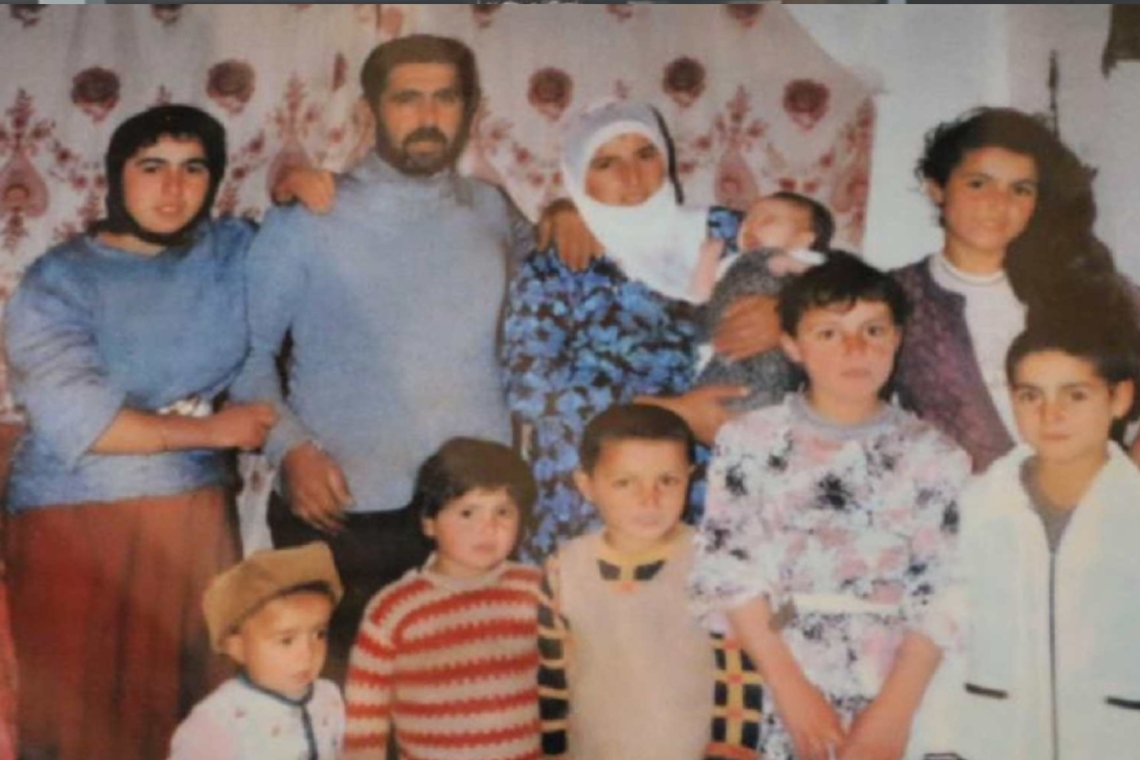DENİZ TEKİN
In the final judgment of the Vartinis Massacre case, where seven children and two adults from the same family were burned to death, the Kırıkkale 1st High Criminal Court ruled that there was no conclusive evidence to prove the massacre was committed with political, racial, or religious intent, declaring it not a crime against humanity. The case, involving the former Hasköy District Gendarmerie Commander Bülent Karaoğlu, was previously dropped due to the statute of limitations.
The massacre occurred in the Vartinis (Altınova) neighborhood of Korkut district, Muş, Turkey, on October 3, 1993. The court had lifted the red notice and arrest warrant against Karaoğlu, who didn't attend the hearings. The court's rationale stated that although it was considered the fire was set under the orders of the accused, the court did not make an assessment of his role and responsibility due to his defense statement not being taken following the Court of Cassation's reversal decision.
The court evaluated the laws under which the defendant would be tried. Victims and their lawyers had demanded the trial under the provisions of the 2005 Penal Code, specifically Article 76 on genocide and Article 77 on crimes against humanity. The court argued that no one could be punished for an act not deemed a crime by the law in force at the time of the offense, as guaranteed by both international treaties and existing laws.
The court further noted, “Considering the provisions that ‘the prosecution and punishment of a person found guilty of an act or omission which, at the time when it was committed, was criminal according to the general principles of law recognized by civilized nations is not precluded’. Crimes against humanity, as defined in our penal code since June 1, 2005, with the specific intent required by law (political, philosophical, racial, or religious motives), lacked conclusive evidence beyond reasonable doubt. Moreover, under the principle of legality, acts committed before the 2005 Penal Code cannot be categorized as crimes against humanity.”
The court applied the most favorable law to the defendant regarding the statute of limitations. According to the 1926 Turkish Penal Code in effect at the time of the crime, the extraordinary statute of limitations for the accused crime was 30 years. Under the 2005 Penal Code, it was up to 45 years. The court, considering the provisions in favor of the defendant, ruled the extraordinary statute of limitations had expired by October 3, 2023, leading to the case being dropped.
The decision was appealed: No statute of limitations on crimes against humanity
Aysel Öğüt, who lost her parents and seven siblings in the fire set by soldiers, through her lawyer Kadir Karaçelik, appealed the decision. The appeal stressed the unacceptable disregard of the court to consider the incident as a crime against humanity and emphasized that such crimes, including the burning to death of nine people, should be covered by national and international laws against humanity, which do not allow for statutes of limitations.
The European Court of Human Rights’ precedents, stating that perpetrators of torture and severe human rights violations cannot benefit from statutes of limitations, were cited in the appeal. The appeal demanded the reversal of the decision to drop the case and the continuation of the trial.
Background of the Incident
The incident in Vartinis (Altınova), a rural area of Korkut district in Muş, Turkey, followed a clash where a non-commissioned officer and a PKK member died. Bülent Karaoğlu, the District Gendarmerie Captain at the time, reportedly threatened to burn the village while passing through Vartinis with the soldier's funeral. The next day, October 3, soldiers set fire to the village, accusing the residents of aiding the PKK.
The massacre, known as the Vartinis Massacre, resulted in the deaths of Mehmet Nasır Öğüt, his wife Eşref Öğüt, and their children Cinal, Cihan, Mehmet Şakir, Mehmet Şirin, Sevda, and Sevim Öğüt, with ages ranging from 3 to 14 years. Aysel Öğüt, the only survivor, filed a complaint stating that her family's house was burned by soldiers. The Diyarbakır State Security Court initially closed the investigation, citing unknown perpetrators.
After legal reforms in 2003, Aysel Öğüt refiled a complaint, leading to the reopening of the investigation in 2013. The indictment accused Bülent Karaoğlu, Hanefi Akyıldız, Şerafettin Uz, and Turhan Nurdoğan of inciting the burning and murder of nine civilians.
The case was moved from Muş to Kırıkkale for security reasons in 2015. The Kırıkkale 1st High Criminal Court acquitted all defendants in 2016. However, the Court of Cassation overturned Karaoğlu's acquittal, citing his threats and responsibility for the operation. Despite issuing an arrest warrant and red notice in 2021 and 2022, Karaoğlu remained at large.
On December 4, 2023, the court ruled that the statute of limitations had expired, leading to the dismissal of the case.



